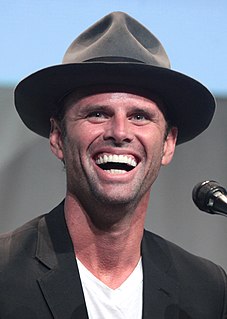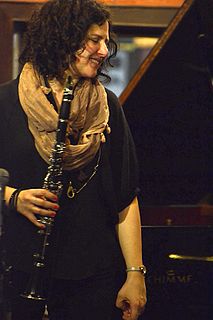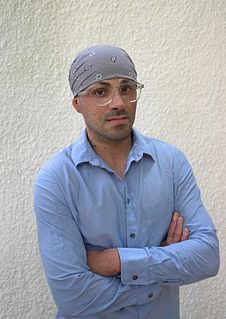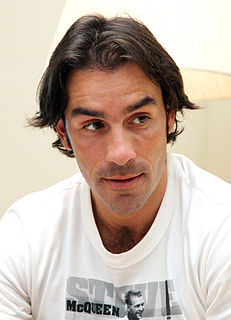A Quote by Walton Goggins
It's about something that I'm extremely passionate about: exploring other cultures, how Americans are perceived by other cultures and how we perceive other cultures through our worldview. I travel whenever I get an opportunity to do so, and I think this country is ready for a show on television that is bilingual and really puts front and center another culture, both as the protagonist and the antagonist.
Related Quotes
All cultures have things to learn from all other cultures. Don't get stuck in your culture! Go beyond it! Get out of your aquarium; get out of your farm; get out of your castle; break your bell jar! Give chance to other cultures and to other opinions! This is the best way for you to see the insufficiencies, absurdities and stupidities in your culture!
I am a passionate traveler, and from the time I was a child, travel formed me as much as my formal education. In order to appreciate cultures of another nation, one needs to go there, know the people and mingle with the culture of that country. One way to do that, if one is lucky enough, is to buy things from those cultures.
Many Westerners see follow-through and reliability as the most critical factor in how they calculate the trustworthiness of another individual. In some other cultures, who you know and how you're related to other individuals is the most important variable. And for others, it may be as much about your reputation and what others have said about you.
I grew up surrounded by all types of cultures - French, Indian, Arabic - a melting pot of cultures, sounds, foods, people, and religions. It opened my eyes early, and I'm grateful for that. It's not about success in one area; it's about exploring the world musically and spending time in those places whenever you can.
I can remember saying again and again and again, "A terrible thing has happened, but this should be a kind of wake-up call for our country, and we have a great opportunity now to reinvent ourselves. To rethink our position about oil and energy, to rethink our relationship with other cultures and other countries, and why other people want to attack us."
I think there's a general confusion that my work is about types of photography. But really that's just a tool to introduce some questions I have about seeing. What happens when all of these conditions and structures and histories and cultures and tools you have around you begin to fail? On the one hand there is an engagement with histories and cultures, and on the other, there is this very lonesome space of actually coming to terms with seeing.
Any kind of grieving that is not allowed causes a break. In our culture, grieving in public is not encouraged, but in other cultures, it is done publicly. Some cultures have walls where people can cry. We don't have that. We have theatre where there's always the chance for you to face things within yourself.




































